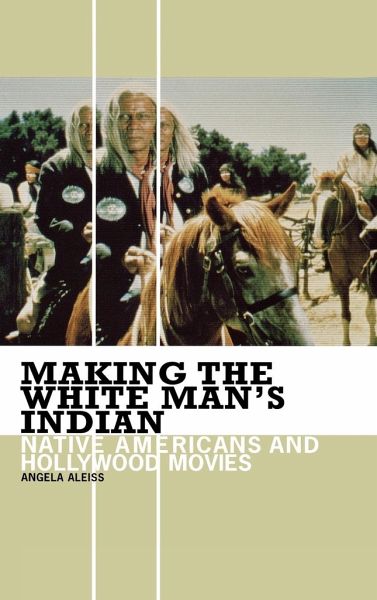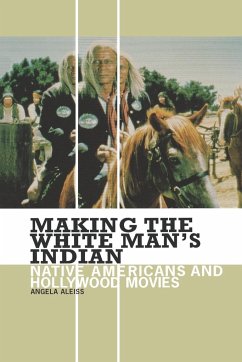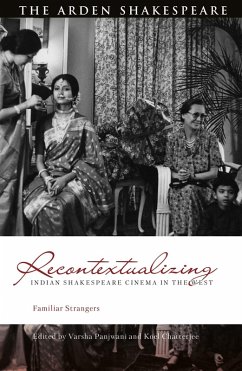
Making the White Man's Indian
Native Americans and Hollywood Movies
Versandkostenfrei!
Versandfertig in 1-2 Wochen
61,99 €
inkl. MwSt.
Weitere Ausgaben:

PAYBACK Punkte
31 °P sammeln!
The image in Hollywood movies of savage Indians attacking white settlers represents only one side of a very complicated picture. In fact sympathetic portrayals of Native Americans stood alongside those of hostile Indians in the silent films of D. W. Griffith and Cecil B. DeMille, and flourished during the early 1930s with Hollywood's cycle of pro-Indian adventures. Decades later, the stereotype became even more complicated, as films depicted the savagery of whites (The Searchers) in contrast to the more peaceful Indian (Broken Arrow). By 1990 the release of Dances with Wolves appeared to have ...
The image in Hollywood movies of savage Indians attacking white settlers represents only one side of a very complicated picture. In fact sympathetic portrayals of Native Americans stood alongside those of hostile Indians in the silent films of D. W. Griffith and Cecil B. DeMille, and flourished during the early 1930s with Hollywood's cycle of pro-Indian adventures. Decades later, the stereotype became even more complicated, as films depicted the savagery of whites (The Searchers) in contrast to the more peaceful Indian (Broken Arrow). By 1990 the release of Dances with Wolves appeared to have recycled the romantic and savage portrayals embedded in early cinema. In this new study, author Angela Aleiss traces the history of Native Americans on the silver screen, and breaks new ground by drawing on primary sources such as studio correspondence, script treatments, trade newspapers, industry censorship files, and filmmakers' interviews to reveal how and why Hollywood created its Indian characters. Behind-the-scenes anecdotes of filmmakers and Native Americans, as well as rare archival photographs, supplement the discussion, which often shows a stark contrast between depiction and reality. The book traces chronologically the development of the Native American's screen image while also examining many forgotten or lost Western films. Each chapter will feature black and white stills from the films discussed.













